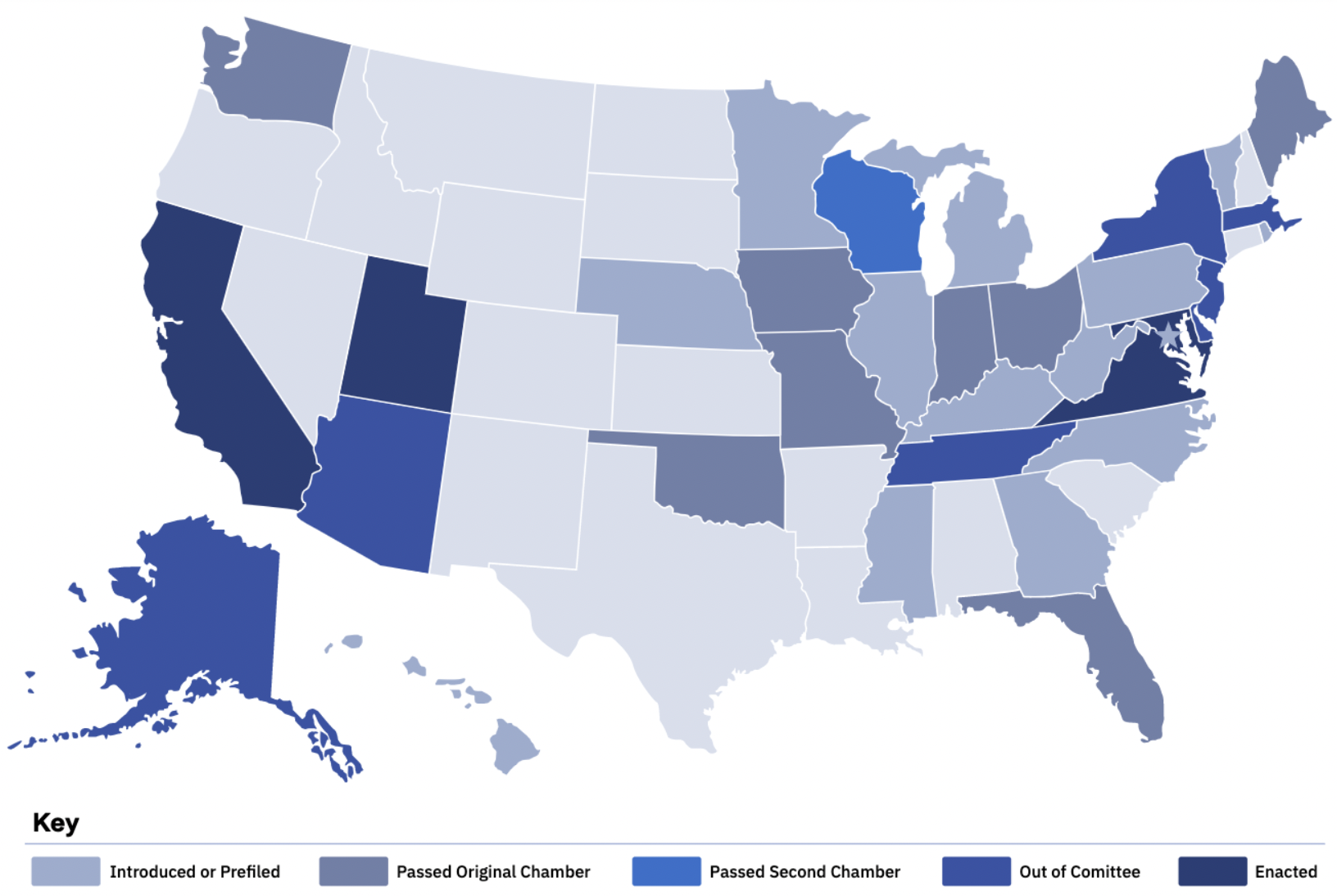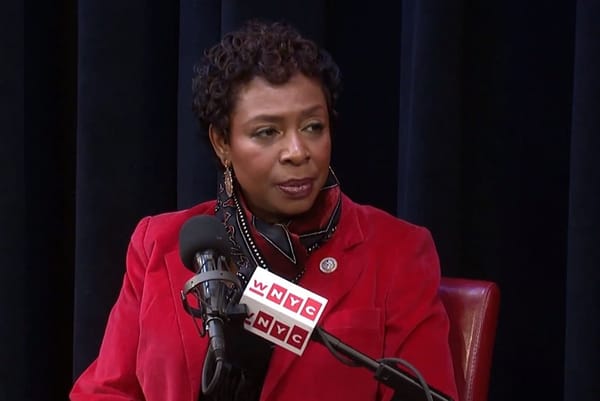Biden Calls for Anti-Big Tech Action, CCIA Shows State Privacy ‘Patchwork,’ FCC Continues Robocall Fight
Biden’s call for federal privacy legislation aims to address an increasingly splintered state privacy landscape.

January 12, 2022 — President Joe Biden on Wednesday called on Congress to curb the power of Big Tech by passing digital privacy, antitrust and content moderation legislation, in an op-ed published by the Wall Street Journal.
“When tech platforms get big enough, many find ways to promote their own products while excluding or disadvantaging competitors — or charge competitors a fortune to sell on their platform,” Biden wrote.
In 2022, the Open App Markets Act — which would have banned those self-preferential practices — gained bipartisan and bicameral support, but was ultimately not included in the year-end spending bill after energetic lobbying from Apple, Google and certain industry groups.
House Republicans have signaled their resistance to antitrust reform, making it unlikely that the coming year will see significant movement in that area, but many Republicans are in agreement with Biden over the need for fundamental reforms to Section 230.
In the op-ed, Biden wrote that tech platforms need to “take responsibility for the content they spread and the algorithms they use.”
Biden’s call for stronger privacy legislation follows the failure of Congress to pass a comprehensive federal privacy bill in 2022, after the American Data Privacy and Protection Act stalled due to California lawmakers’ opposition to its preemption of state laws. The ADPPA is expected to be reintroduced this session, now facing a divided Congress.
In addition to supporting strong federal privacy legislation, Biden argued that Congress should “limit targeted advertising and ban it altogether for children.”
CCIA privacy map identifies state-by-state ‘patchwork’ legislation
The Computer and Communications Industry Association on Thursday released a summary of more than 80 state privacy bills introduced in 2021–2022, demonstrating the wide range of state approaches to an increasingly complex issue.
Several states are giving particular attention to the collection of biometric data such as fingerprints and retinal measurements, differentiating this data from other personally identifiable information because it cannot be readily changed. Other states are focused on children’s online safety, attempting to restrict targeted advertising toward and data collection from minors.

The CCIA’s map shows that the status of privacy legislation varies significantly from state to state.
The CCIA encouraged Congress to enact federal privacy legislation, pointing to the importance of providing consumers and companies with consistent protections and compliance standards.
“Patchwork privacy protections are especially difficult for smaller businesses that may have smaller legal compliance teams and may struggle to comply with variable local and state regulations,” said Khara Boender, state policy director for the CCIA.
The CCIA also identified key states to watch in the upcoming legislative cycle, noting that 2023 will be a significant year for privacy as new laws take effect in Colorado, Connecticut, Utah and Virginia, as well as significant amendments to the California Consumer Privacy Act.
“We are monitoring and engaging in state efforts to ensure that the good intentions of legislation are not undermined by unintended consequences, such as creating subjective compliance standards or requirements for companies to gather more data, particularly for children,” Boender said.
FCC orders more providers to end support for robocalls
The Federal Communications Commission on Wednesday warned two more voice service providers to stop supporting illegal robocall traffic or risk being permanently cut off from sending calls.
In the cease-and-desist letters, FCC Enforcement Bureau Chief Loyaan Egal instructed SIPphony LLC and Vultik, Inc to investigate the identified traffic and block it if necessary, in addition to taking steps to prevent future illegal robocalls over their networks.
More than 20 providers have now received similar warnings from the FCC, and the agency reported that nearly all either demonstrated that robocall traffic was cut off or announced that they would be ceasing all operations.
The FCC has been ramping up efforts to curb robocalls for several months, and is beginning to adapt those efforts to spam text messages as well.
In addition to being a nuisance, robocalls “destroy trust in our communications networks,” said Jessica Rosenworcel, chairwoman of the FCC. “We will continue to use every tool we have to go after this fraud and stop the bad actors responsible for these calls in their tracks.”








